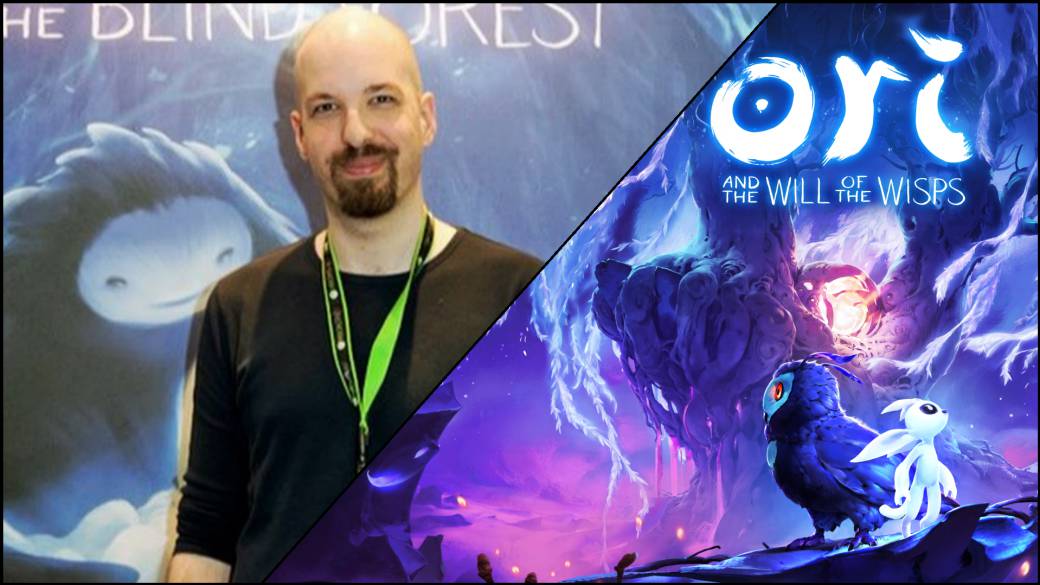
We interview Thomas Mahler, co-founder of Moon Studios, to learn about the past of the study and what is to come with Ori and the Will of the Wisps.
There is something inexplicable in your first connection with Ori and the Blind Forest. Call it feeling, beauty, magic … there are plenty of qualifications to express the spell of Moon Studios in text for the first time. The craftsmanship of his work has made him one of the new IP’s best valued by the community and critics.
A few days after receiving its sequel, FreeGameTips sits in front of Thomas Mahler, co-founder of the company, to chat electronically about the steps that have taken the team to the point where they are. Dreams sometimes come true.
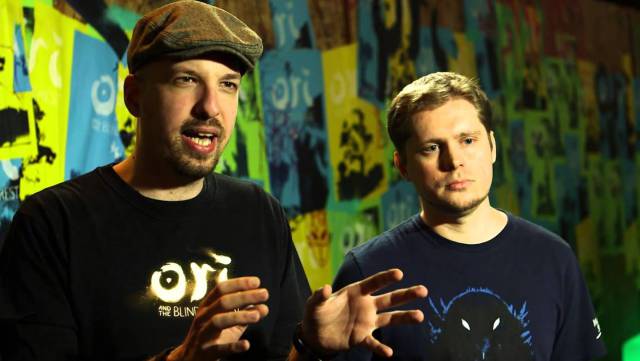 Thomas Mahler (left) and Gennadiy Korol (right), during the launch of Ori and the Blind Forest.
Thomas Mahler (left) and Gennadiy Korol (right), during the launch of Ori and the Blind Forest.
From a prototype to the sky of Los Angeles
This year marks a decade of the founding of Moon Studios. Our guest, along with Gennadiy Korol, began a new stage in which they embraced the unknown, the fear of not knowing what will happen tomorrow, but at the same time one of tremendous illusion. Like any independent study worth its salt (that they tell StudioMDHR), the first steps are not always the right ones.
“I contacted several publishers to show them several of our prototypes,” says Thomas. One of them, Warsoup, from which we can still watch material on his own YouTube channel, was a sort of first person shooter and RTS, something like what Marcus Letho wants to achieve in Disintegration. The premise, combining Halo's refined shooter experience with Starcraft's real-time strategy, already sounds ambitious in itself, but still more so for newcomers.
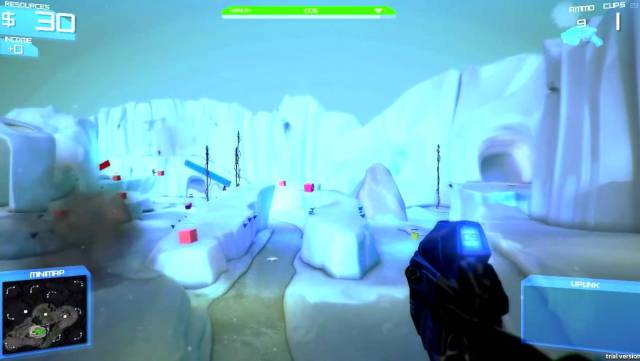 Warsoup, the first prototype of Moon Studios that would never see the light.
Warsoup, the first prototype of Moon Studios that would never see the light.
“We showed it to Microsoft in its day. At that time we were three or four people and it was like ‘hey, maybe this is too much for you’. We had another prototype that ended up targeting what would be Blind Forest. That was the prototype they really liked. So we decided to do Ori instead of Warsoup, ”he explains. Of all the publishers who went through its catalog, it was the American giant who gave them confidence. "We feel they touched the right keys."
In that initial quartet the expansion of a globalized Moon Studios began. “The way we are distributed is crazy. There are people all over the globe together for only one reason, ”he says. And, in his words, it was something that grew "naturally." "We met an uncle from Australia who became one of our programmers, and then we met another … we grew up organically." Now the team is made up of 80 people. "It's something crazy."
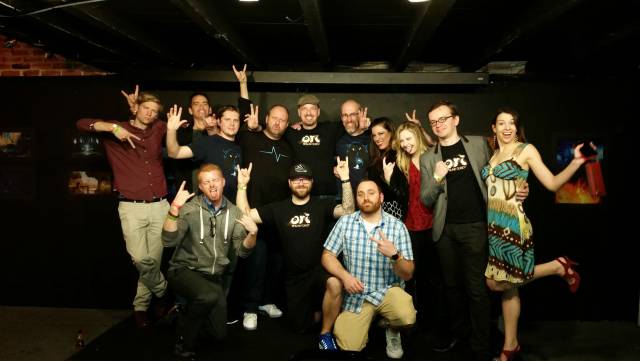 Part of the Moon Studios team. Photo source: Refined Geekery.
Part of the Moon Studios team. Photo source: Refined Geekery.
Then came Ori and the Blind Forest. “We started with all that of the resurgence of the Metroidvania genre because when we started the work there were games like Aquaria or Shadow Complex, but they didn't arrive with the same caliber as they do now. So when we left it was like ‘holy god, a lot of metroidvanias are appearing’. It was great, ”Mahler recalls.
FreeGameTips rated its first job with a 9.5. “He enters by sight and stays by what he transmits through the command. Ori and the Blind Forest is much more than a fantasy world, an endearing character and an excellent soundtrack. It is a great exponent of the platform genre: brilliant in level design, with a multitude of mechanics and precise control, ”said Salvador Fernández in 2015. And, for many, it became an instant classic of the generation.
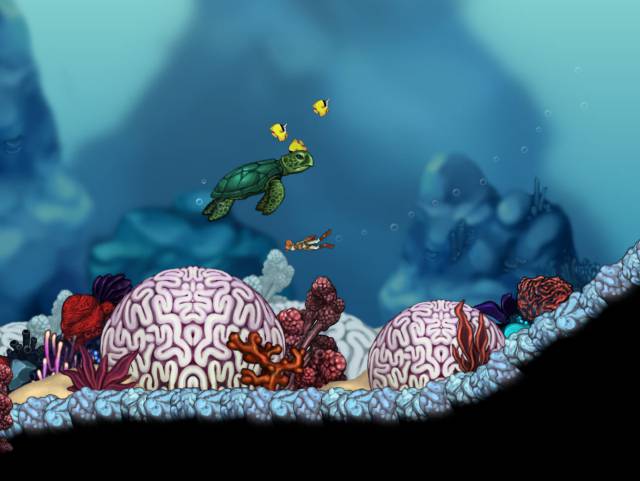 Aquaria
Aquaria
For Thomas, there are several reasons why Blind Forest transcended that way. “I think it was several things. I think people really saw how defined the controls were and that kind of aspect they feel when playing it. If you have played or spent 10 minutes with him, you feel the flow of all the elements on the screen ”. But, above all, what makes the difference is the connection of those in front of the TV: “Connecting with the players is vital. The first thing people usually say is the artistic style, right? We have people who came from Blizzard Entertainment and others. In the studio I never worried about art, I have the presumption that when we do something we do it that looks spectacular. ”
Road to Ori and the Will of the Wisps
From the minute one of appearing the original in the market, the team got down to work to know what are the weaknesses that players would face in the face of a hypothetical sequel. Thomas acknowledges being one of "those crazy developers who even go to internet forums" to read everything they say about their game. Feedback is vital, especially when it comes from ordinary users.
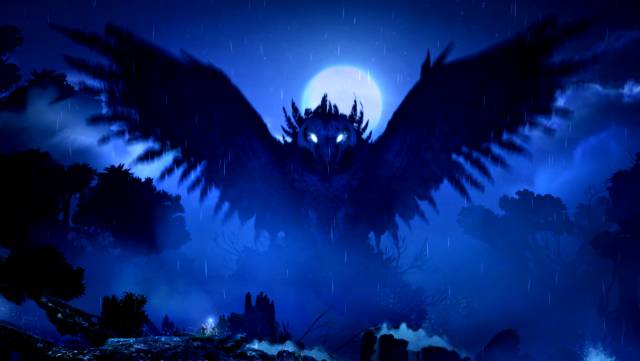 Ori and the Blind Forest submitted to the public's verdict.
Ori and the Blind Forest submitted to the public's verdict.
"The things we have added in Ori and the Will of the Wisps were parts that we tried in the first one but we couldn't do at that point." He claims that it was "too much work" and that the budget "was too tight", so many things that remained in the inkwell would take center stage here, such as combat. "The fight is something I wanted to deepen and I thought‘ we did important things with the platforms in Blind Forest, it's time they were at the same level, that they felt fused and became something incredible. " In the absence, there is nothing better than the demand for himself: "We also thought that the visual could be done better."
The creative describes that the fight of Ori and the Will of the Wisps makes you "feel like a ninja". “You double jump, evade an enemy and immediately make three or four strokes while watching everything fall smoothly. It is not common in the genre that if you carry a big club the game changes completely, your tempos are different, and so on. ” He compares it to Castlevania: Symphony of the Night, in which the movement set was the same for all types of weapons. “The tempo changed a little, but nothing more. So here we said ‘we are not going to offer as many weapons as in Symphony of the Night. We will make each weapon feel different. We have included a lot of new animations and movements for each type. ”
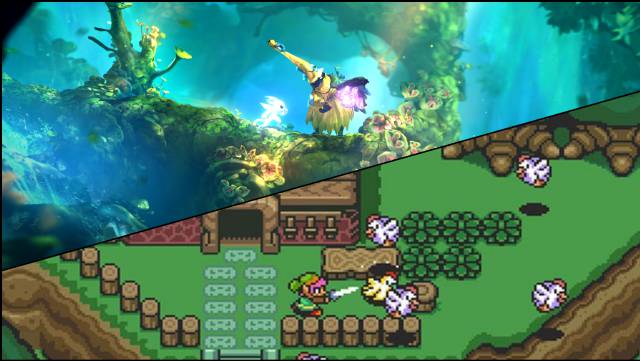 "We wanted it to have an approach similar to what Nintendo did with The Legend of Zelda: A Link to the Past with respect to the original"
"We wanted it to have an approach similar to what Nintendo did with The Legend of Zelda: A Link to the Past with respect to the original"
Beyond combat, another aspect of special relevance for Thomas was the inclusion of characters throughout the world. “We wanted it to have an approach similar to what Nintendo did in The Legend of Zelda: A Link to the Past with respect to the original. The legend of Zelda was the base, then A Link to the Past arrived and they made everything much deeper. Suddenly you had all those NPCs you could talk to. It had more history, more objects, it was more polished… it felt much rounder. That is the kind of thing we are trying.
Link's adventures are a recurring example for Thomas, who shows a deep admiration for the work of the Japanese company, even from the perspective of a completely different genre. "Creating metroidvanias is very difficult. If you do not agree with that, you better not do it," he says with a laugh, and that his words give off countless hours in search of perfection. "It is one of the most difficult genres to address because if you change something, it may have great consequences for everything else. Finding the balance of all aspects, making sure everything works … is really incredible. The only way to know is to try it countless times so that everything feels good. "
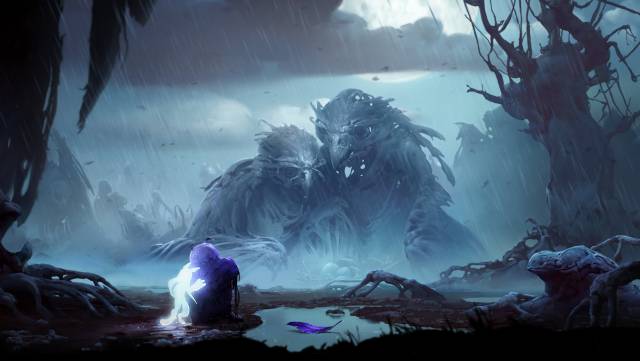 Ori and the Will of the Wisps
Ori and the Will of the Wisps
Perhaps influenced by it, Ori and the Will of the Wisps will borrow RPG elements within its formula. Wellspring Glades, the world of the sequel, is inhabited by numerous characters with whom we can interact, either to deepen the story or build new elements that report us rewards. “We wanted to have RPG elements so that you are constantly behind something. For example, you don't play Zelda running from dungeon to dungeon, but you always want to have new tools to use around the world. You leave a dungeon and you have an unpublished tool to try. I want to be able to do it in the world of Ori. Talk to an NPC and see what is behind the waterfall you talked about. That feeling is what we want the player to have constantly ". Characters that mix old faces with newcomers, although he clarifies:" We have made sure that you do not need to play the first one if you enjoyed the second one but, if you do, you will know several that appear of the sequel. "
The expansion of all its aspects (it will be three times larger than its predecessor) has influenced the way in which progress will work. Instead of the manual save points, the game raises a system of control points with which to release the player's load. Thomas justifies it as follows: “There was too much to handle. We did the manual storage in Blind Forest, it worked there because you didn't have too many things in your head. Now you have the platforms, the puzzles, all the equipment on the buttons, the combat … it was too much to think at the same time. So we tried a checkpoint system and immediately saw that it was the best for this type of game. ” On the side of the version for Windows 10, Thomas confirms that we can change the assignment of movements by using keyboard and mouse, something that was not contemplated natively in the original, even in the final edition. "Yes, we are still working on it, but we definitely want to support it."
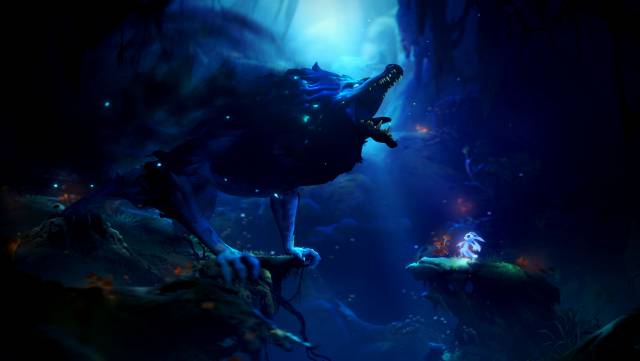 Ori and the Will of the Wisps
Ori and the Will of the Wisps
Narrate the feelings without words
That's what Gareth Coker, composer of the original and does the same thing in the sequel has dedicated all his life. As Mahler tells us, the impact of music on the creative process of Blind Forest and Will of the Wisps is enormous. "We use music differently than other developers because we give the composer access to everything from the beginning." There comes into play Coker. “He sees all the scenes and the entire content from the beginning. We use music such as writing to history, when we want a character to say something or express an emotion in a particular way. If the music wasn't there it simply wouldn't work. ”
The care for leasing every little detail ends up being reflected in the final product. “I know what I want the player to feel in a certain scene. We wake up the gameplay and know that, okay, if the character takes five steps this piece enters the scene, then it impacts perfectly. It's almost like conducting an orchestra, but directing the player. It is extremely laborious, at the same time satisfactory. ”
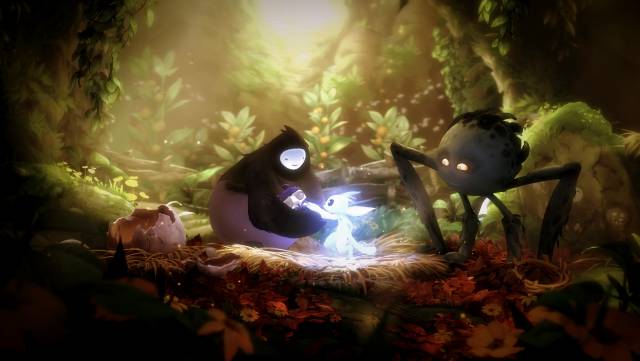 Ori and the Will of the Wisps
Ori and the Will of the Wisps
For his personal discomfort, music is one of the parts that are often forgotten, which he fails to understand. “It's disappointing when music is just an extra, when it's just playing in the background in a loop. I want it to be dynamic, to change according to my actions. In terms of game design, I want to have complete control over it. It is very, very, very important for us. ”
He compares it to the film industry. “In the edition of the movie you see all the scenes and introduce the pieces you want to place at the right time. In video games it is not something you usually see and I find it too strange. ”
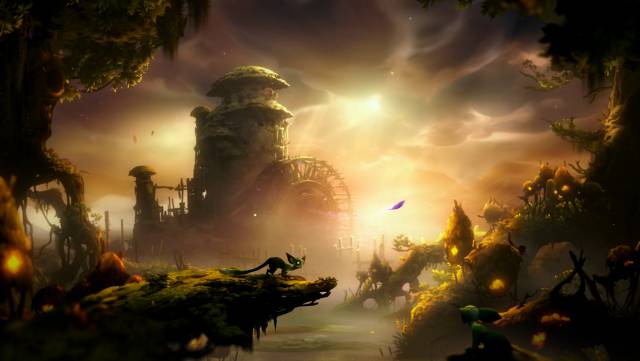
Hollow Knight: "Comparisons don't bother me"
The creative process also goes through knowing your rivals, and Thomas is aware of everything, including repeated comparisons with another of the most successful metroidvanias of the last five years: Hollow Knight. "I liked. I didn't like the rhythm, but I think it was interesting, ”he confesses. For him, Hollow Knight and Ori and the Blind Forest are very different games. “Hollow Knight was not so focused on the platforms, it was extremely simple, while with Ori we tried to make sure he felt even better than a 2D Mario. That was the goal we set ourselves. It will be interesting for Will of the Wisps because it has been in combat that we have tried to improve especially and that was something that his players liked. ”
On repeated comparisons, he acknowledges that he doesn't care. “We inspire them and they inspired us. In the end we both want to make the best game possible. What matters is the end result, right? I just want people to have fun with the game. I only care about that, ”he concludes.
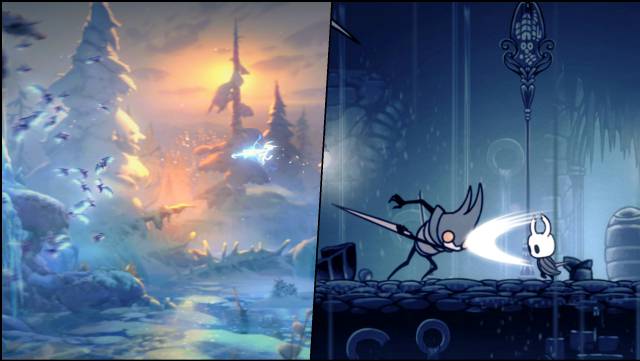 “We inspire them and they inspired us. In the end we both want to make the best possible game. "
“We inspire them and they inspired us. In the end we both want to make the best possible game. "
Ori is back
Ori and the Will of the Wisps will debut on March 11 on Xbox One and Windows 10. As usual within the projects under the protection of the division, will participate from the first day in Xbox Game Pass, both its console version and on PC

